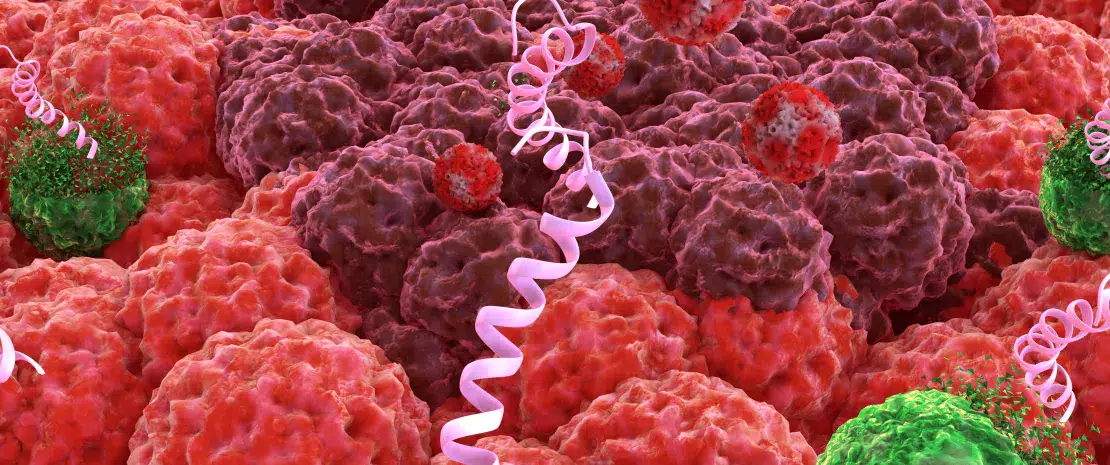Focus on the role of antimicrobial peptides
Antimicrobial peptides (AMP) are small multifunctional peptides present in the animal and plant kingdoms that protect the host against attacks from pathogenic microorganisms. Among them are defensins, thus called because they act as host defense peptides.
Lay public section
Find here your dedicated section
Sources
This article is based on scientific information
Sections

Antimicrobial peptides, illustration.
About this article
Defensins play a major role in innate immunity. Ten defensins have been identified in humans: six α-defensins that are mainly secreted by Paneth cells, neutrophils and some populations of small intestine macrophages; and four β-defensins that are secreted by epithelial cells.5
Mechanisms of action
Mechanisms of action of antimicrobial peptides are variable:8 some puncture bacterial membranes and cause ion and nutrient efflux, loss of structure, or even bacterial lysis; other “bind” to bacteria and limit they passage through the gut epithelium without killing them; in other words, they reduce pathogen colonization and change the composition and density of bacterial communities in the intestinal lumen.
Crohn's disease and decrease in defensins
When CD affects the ileum, the production of some α-defensins decreases, which reduces antibacterial activity and promotes pathogenic bacteria penetration5. Among possible explanations there is NOD2 gene mutation, involved in the recognition of bacterial surface and onset of defensin production; and impaired signaling pathways, whose dysregulation is involved in the development of many human cancers. Some researchers believe that the decrease in α defensin content is not the cause but the consequence of inflammation.4 In colonic CD, only β-defensin rates are disrupted5: increase in secretion of β-defensin type 2 and decrease in type 1. Some scientists believe that the smaller number of copies of the gene located on chromosome 8 in affected patients (3 instead of 4) is at fault.






